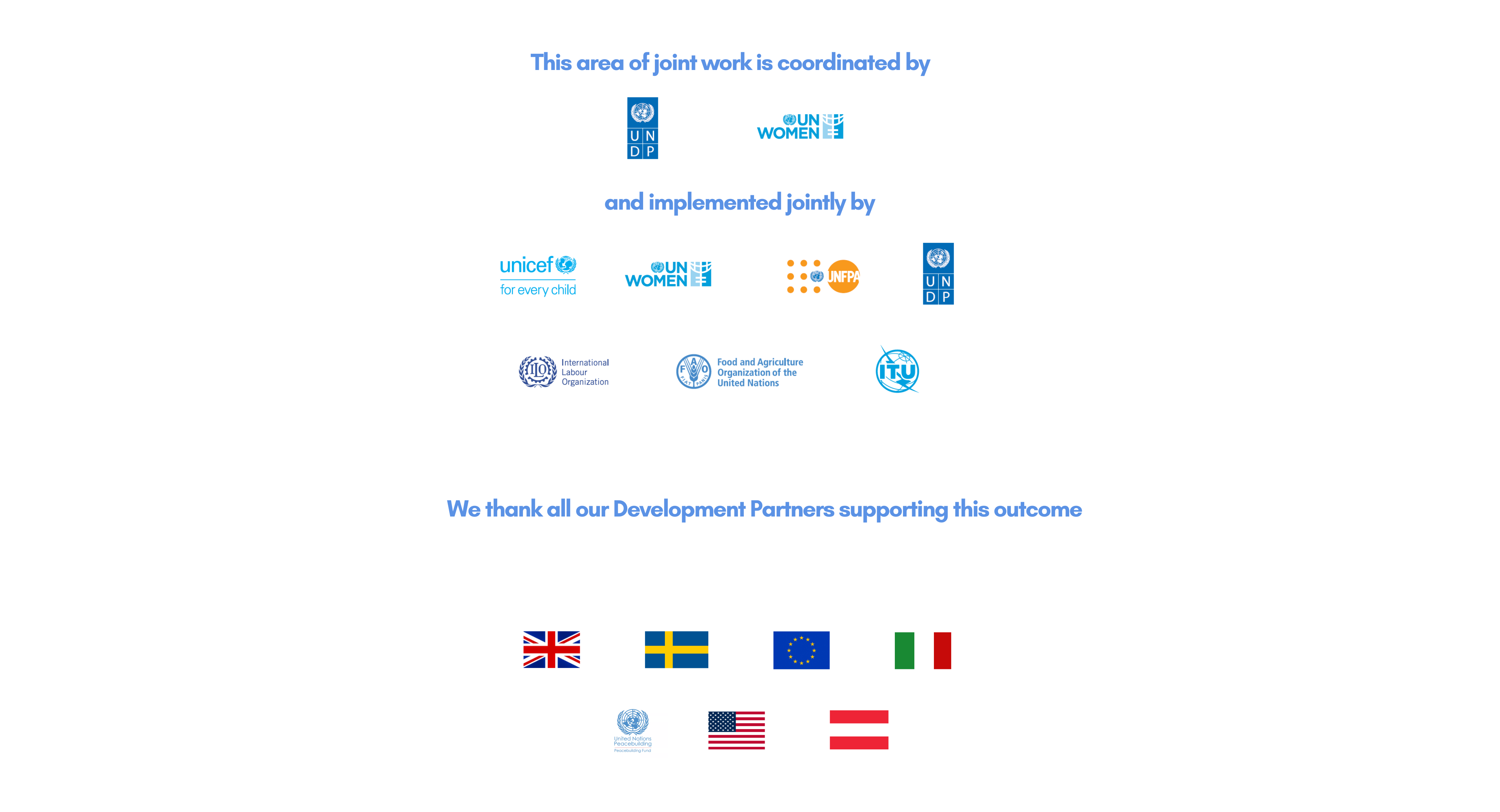A story of building back better
Against the gentle hum of a sewing room, amid the rhythmic whir of machines, Rina finds more than just stitches and fabric. She is a survivor, a testament to resilience, who is attending a sewing course. Economic empowerment is pulsating, a lifeline extended to women and girls navigating the aftermath of domestic and gender-based violence. For Rina, it has been a journey of transformation, from registering with the employment office to securing a full-time position in the same business where she honed her skills in an apprenticeship.
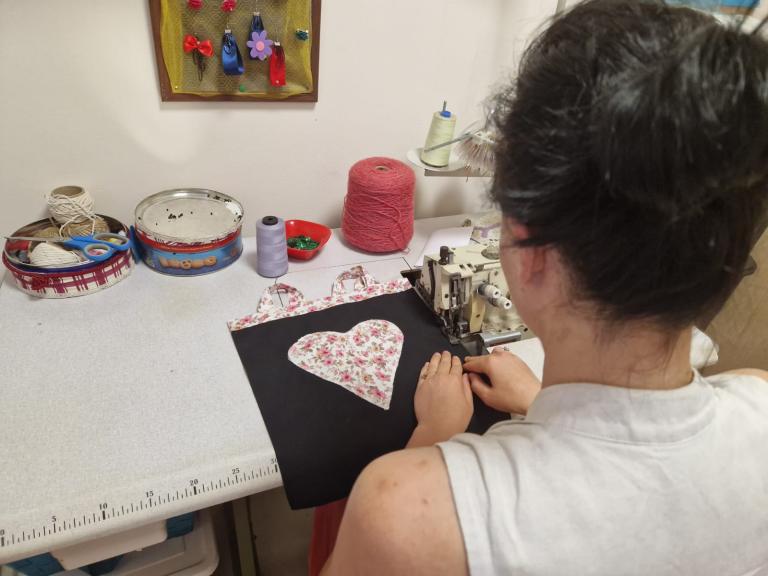
End violence against women and children
In 2023, the UN advanced efforts to address and eliminate violence against women, girls and children (EVAWGC), offering support, protection and empowerment to those affected. Efforts led to a stronger institutional response to implement laws and policies addressing such violence and their better alignment with international standards and recommendations including the most recent (2023) CEDAW Concluding Observations. Fourteen partner CSOs actively contributed to development of shadow reports on implementation of the Istanbul Convention and CEDAW. UN supported MoHSP in the CEDAW review process and the GREVIO thematic state report, and MoJ on provisions related to sexual violence and violence against women and children. MoJ and MoHSP were further supported in preparing for bilateral meetings on chapters 23 and 19 of the EU acquis and development of respective roadmaps. Efforts were initiated to establish a femicide watch in Albania, providing technical support to the Ombudsperson.
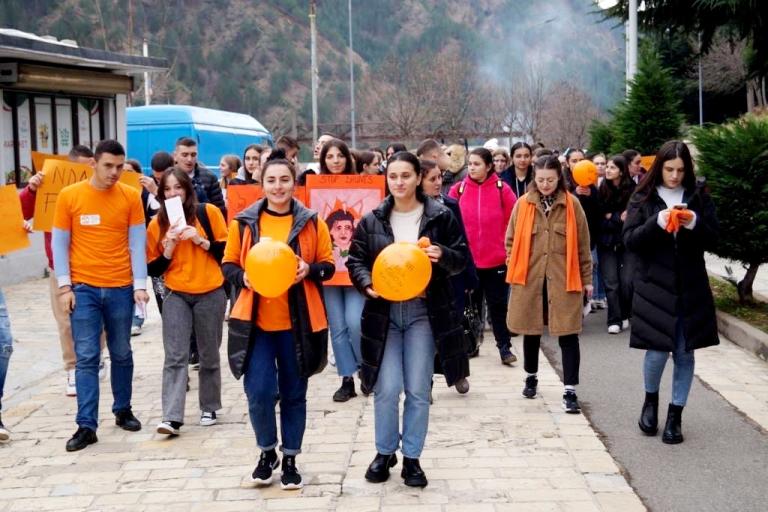
An improved institutional response to EVAWGC was put in place. Coordinated Referral Mechanisms (CRMs) in all municipalities were strengthened, ensuring a more cohesive and effective approach. Thorough analysis of CRMs in 42 municipalities is being finalized, evaluating the effectiveness, challenges and recommendations. In 2023, 317 service providers (of which at least 264 women) in 24 municipalities[1] increased their capacities to handle and refer cases of violence, including health service, teachers, police officers and local domestic violence coordinators. As a result, 426 people (10 men and 416 women survivors of violence), including at least 27 Roma and Egyptian women, 16 women with disabilities, and 123 women from rural areas received direct support. Amongst these beneficiaries, 226 received legal aid and 76 received psychological support. Preliminary data for 2023 provided by MoHSP show that 5,064 cases of violence were reported, 2,730 Protection Orders or Immediate Protection Orders were released and 1,911 cases were referred to the prosecutor. 621 cases of violence were addressed through the online registration and tracking system of GBV cases (REVALB). Through the MoUs signed between Faith-based Organisations (FBOs) and Pogradec and Vlore municipalities, the organisations are now participants in the municipal CRMs.
Addressing gender stereotypes and harmful norms and practices
The UN contribution throughout 2023 aimed at increasing the knowledge of rights-holders of gender stereotypes and harmful norms and practices through partnering with central and local governments, media and youth. A UN Albania position paper was issued, advocating for revision of the GE law and the development of a policy document addressing child, early or forced marriage and providing recommendations for legal framework changes. Efforts to combat child marriage and promote GE had impact across various sectors, including through the following:
- A new regulatory document was issued—the Code of Ethics in Broadcasting—by the Audio-Visual Media Authority, specifically addressing child marriage.
- Community engagement played a crucial role, with 7 communities participating in dialogue and consensus building on alternatives to child marriage, adolescent girl rights and GE.
- 33 teachers (8 males) and 60 students (18 males) were reached with information on GE, positive gender norms and the risks associated with harmful practices. They were further supported to reach and engage an additional 635 schoolmates, parents and community members through creative activities. 12 exhibitions with designs by teenagers were organised in 7 municipalities and attended by 272 students (71 males), and 1,400 community members were informed on the risks and prevention of child marriage and early union.
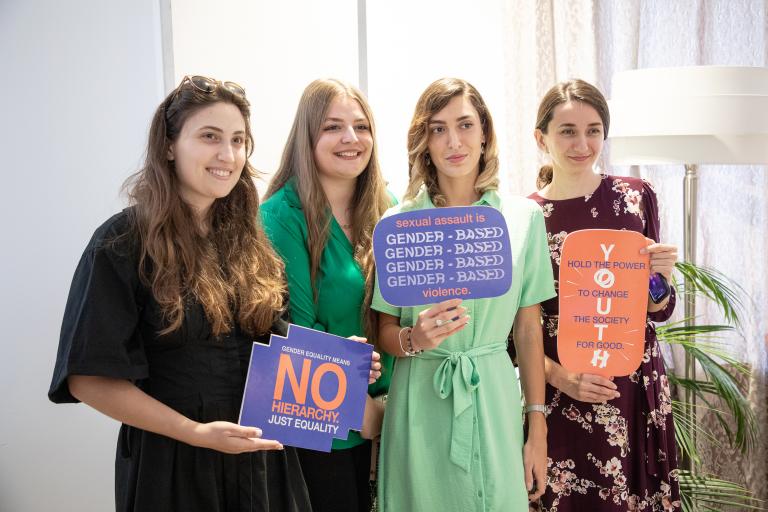
Gender-responsive planning and budgeting
In 2023, significant progress was made to improve gender-responsive governance in Albania at central and local levels and to ensure that the UN system delivers for women and girls. There was a significant increase in the total budget allocated to GE, amounting to 9.6 percent in the 2023–2025 Medium-Term Budget Programme (MTPB), compared to nine percent in the previous year. Out of 128 budgetary programmes 53 are engendered, placing Albania amongst the few countries globally with a system to track budget allocations dedicated to GE. All budget instructions include GRB in their criteria, and a gender budget statement was attached to the project budget. The Gender-sensitive Citizens’ Budget ensured the transparency of the budget for all citizens. MoHSP’s active role in advocating for gender key performance indicators in MTBP is a direct outcome of the partnership between the UN, MoFE and MoHSP that has enhanced the capacities of 280 public officials (11 ministries, 20 GE employees) on gender mainstreaming, integration of GRB in MTBP 2023–2025, and gender statistics.
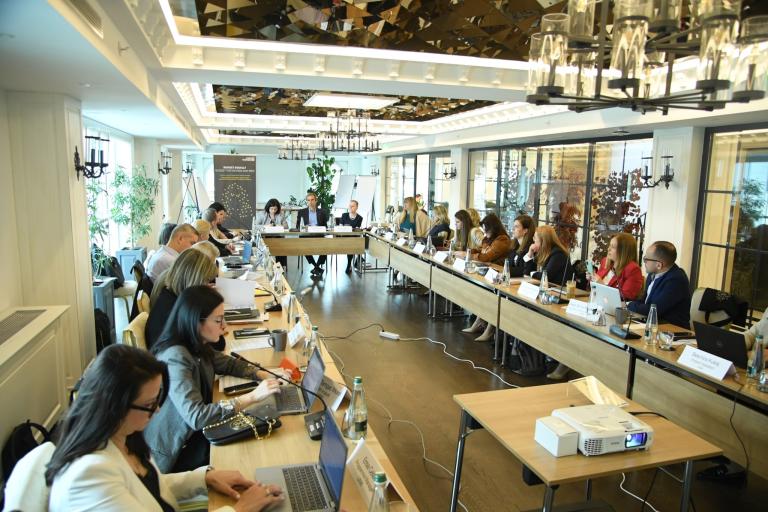
Gender equality mechanisms
The UN efforts in 2023 contributed to increased gender mainstreaming in strategic planning, policy guidance, local governance, rural economic empowerment and youth engagement. Specific inputs were provided for integrating GE aspects into key strategies, including the Cross-sectoral Strategy on Decentralisation and Local Self-governance 2023–2030, the National Employment and Skills Strategy 2023–2030, and six draft IPA 2024 Action Documents. To ensure alignment with the EU legal and policy framework and guide future policies and planning, five gender mainstreaming guidance notes were finalised, covering areas including justice, anti-corruption, DRR, ICT, digitalization and health.
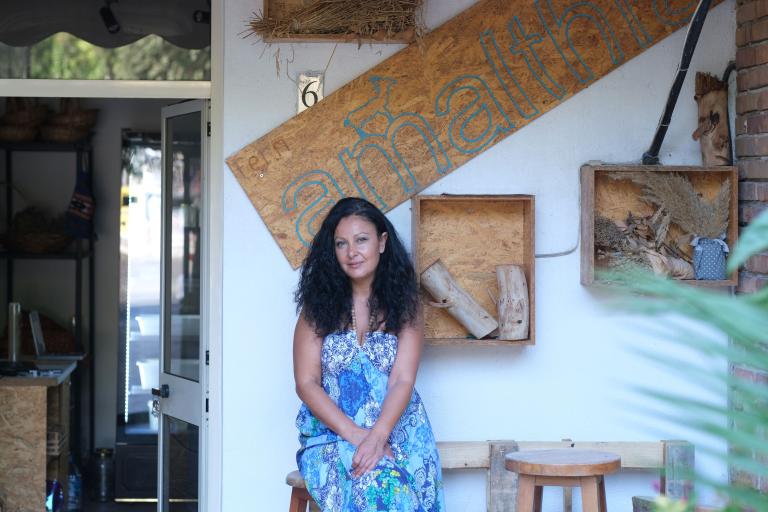
Leadership and participation
In the realm of women’s political participation, the UN launched a needs assessment to evaluate the legislative, representative and oversight capacities of local-level women politicians. The insights gained will serve as a foundation for future programming and tailored support to address specific legislative, representative and oversight needs identified among such politicians. Efforts to empower women in agribusiness involved the organisation of diverse capacity-building activities that led to increased interest from 22 women in two municipalities to engage in agribusiness incubators, taking on various managerial and administrative roles. The improved skills and knowledge gained through these activities positively contributed to enhanced self-esteem, confidence and decision-making capacities, preparing them for skills-based roles and responsibilities in agribusiness incubators.
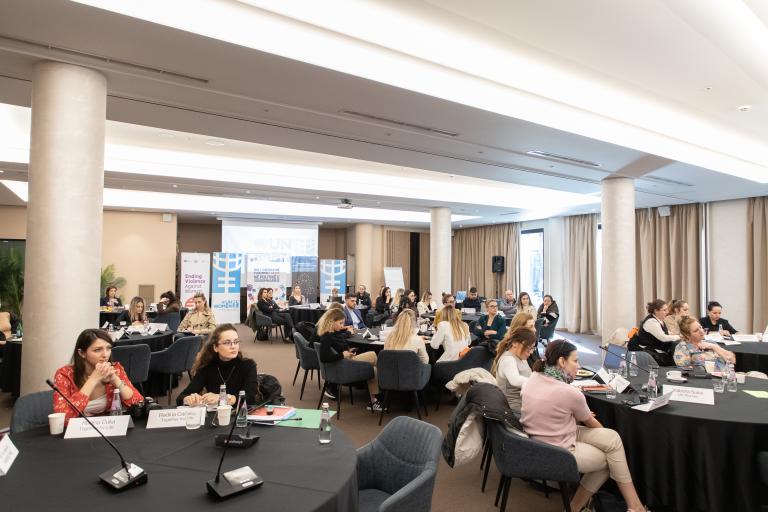
Furthermore, 20 journalists and media professionals, predominantly women, actively participated in the 1st Media Forum focused on addressing issues of sexism, gender stereotypes and VAW in elections and politics within the media landscape. It particularly contextualised these concerns in light of the 2023 local elections and beyond. Building on this, an additional 40 journalists and media representatives in three municipalities were equipped with skills and knowledge to effectively tackle these issues in media coverage. Finally, 14 women politicians improved their dialogue with media professionals, addressing the nexus between disinformation, gender-based discrimination and VAW in Politics and during Elections.
Highlights of Results on Gender Responsive Governance
Institutions
strengthened capacities to improve the provision of essential services, goods and resources for women
Legal Acts and Policy Documents
developed addressing child marriage as a harmful practice
of Total National Budget
allocated to Gender Equality and Women’s Empowerment
Institutions
have increased capacities to design and implement institutional reforms, strategies, policies that promote GEWE

